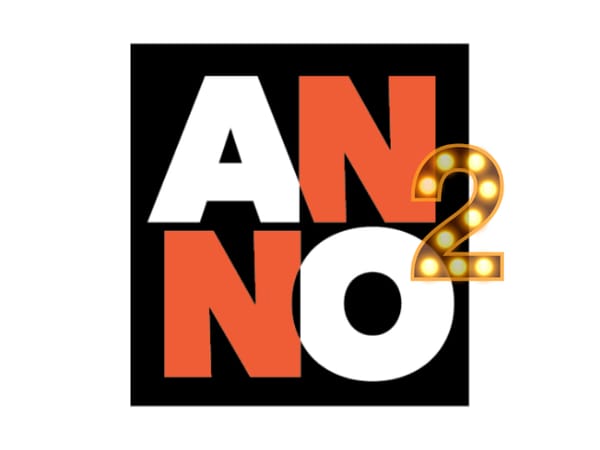AJP’s JPMorgan Chase win merits a second (skeptical) look.
American Journalism Project lands a new funder and loses sight of its purpose.

By Amos Gelb
Eons ago, as in pre-Covid, when American Witness was just getting started in the fundraising business, Elizabeth Green graciously had a couple of calls with me, sharing insights and ideas. She was generous, gracious and committed to making sure all our boats were lifted by the tide that had lifted her own organization.
For those not familiar, Green is the co-founder and driving force behind Chalkbeat (and now Votebeat.) At the time (circa 2019), Chalkbeat and the Texas Tribune were at the top of the non-profit journalism heap, raising buckets of money and paving the path for the rest of us.
During our conversations, Green mentioned that she and Evan Smith (of the Texas Tribune) were starting something called the American Journalism Project. The idea sounded as simple as it was noble: create a fund to raise money to share some of the wealth they were raising with smaller non-profit organizations.
With a skeleton team, AJP went to work picking a few smaller journalism operations and giving out some much needed money. Run by journalists to support journalists, it was effective and responsive.
How things have strayed. Local News Blues has become the place to call folks out, so let me add AJP to the pantheon of journalistic-adjacent, self-appointed saviors of journalism preaching a gospel that benefits them (non-journalistic organizations) in the name of us (doing the actual journalism.).
But first a caveat: American Witness applied several times to AJP, including at the urging of Green (even though she has long since stepped away from running it). We were rejected every time. But I am NOT calling out AJP from sour grapes. I am calling it out because of what transpired just before this July 4.
That was when AJP’s president Sarabeth Berman was quoted in a press release trumpeting that AJP had acquired a new funder — JPMorgan Chase – and would be getting money and support for its efforts to support the rebuilding of local news and, at least according to the press release, non-financial support for eight organizations that AJP currently funds:
- THE CITY
- Block Club Chicago
- Mississippi Today
- Cityside
- Montana Free Press
- Signal Ohio
- Fort Worth Report
- Spotlight Delaware
Good on these news orgs. I hope they get much needed cash.
But here is the problem that we see time and time again: These “savior” organizations have strayed from their original good intentions. I am not suggesting they have morphed into having negative motivations, but rather that is the effect.
Here is why.
(1) By going to JPMorgan and getting a bucket of money that they then decide how to dispense, these non-journalists (neither Green nor her VP of local partnerships have any experience as journalists) are deciding who benefits, as in what organizations should have the chance to succeed. Only half facetiously, I ask Berman, “Who specifically died and made you God?” At a time of such economic jeopardy for smaller news orgs, what are Berman’s qualifications to decide who is worthy of AJP’s largesse funded by others’ money? It would be like me deciding what Alzheimers’ research is worth funding.
This is not an ad hominem attack. I do not know Berman, never met her, have never spoken to her, and I am sure she is both smart and decent. But she runs AJP and made the announcement and as I struggle to build a viable economic model for my own operation, I find my path littered with more and more Bermans — well meaning folks who aren’t doing the journalism and have never done it but claim to be here to save me without ever doing anything that actually supports me while taking in lots of bucks in our name.
(2) How much is JPMorgan paying AJP and how much is being directed to their own operations rather than supporting the organizations they have hand-selected? The wording of the press release is fascinating in that it is so carefully phrased to suggest money is only going to AJP and in-kind support goes to the eight. If AJP still holds to its mission, it should come clean about those numbers immediately and not bury them in press release-speak. Show me that my worst suspicions are not correct and I will enthusiastically eat my words by literally printing out this column and eating it.
(3) Eight? Only eight? If AJP is getting JPMorgan money to save local journalism, shouldn’t a few more than eight operations get the benefit? Or did AJP deem only eight worthwhile?
(4) If AJP is really so interested in saving journalism, can anyone explain, as I have asked of INN and other similar savior organizations, how do you justify an organization of 32 employees? I cannot name a single local newsroom of the type AJP claims to be here to save that has a staff of 30. Also, AJP has so many VP’s, directors, heads and leads that it could be mistaken for a bloated university administration. Even if AJP was currently supporting 44 orgs (as it claims to have helped on its website), that is almost 1 AJP employee per organization assisted. Does anyone else see a problem in this math?
I am sure I will get excoriated, as I have before, about the vital work they do. But give me two of those positions and I will show you what that money can do for local journalism.
(5) A final point: As an old investigative journalist, something smells off about the whole deal. If JPMorgan really wanted to support local journalism, it could give direct grants or offer low/no fee loans to local news orgs. That would truly help local journalism and do what the bank does best because local news orgs generally suck at financials. Think of the potential of local bank managers working with news orgs to help them manage their finances and develop a path to sustainability. The news orgs benefit, JPMorgan makes a real difference, the burden is diffused among local branches, and everyone wins. So why does JPMorgan need AJP? I am sure AJP went a-calling (something you can do with a staff of 32). Obviously, AJP sang the familiar tune of “You don’t need to bother with all the places, we can do that for you. Give it to us and we will make sure it gets to the right places.” Although I ask again — eight?
The strange nature of the press release gets my investigative senses buzzing, as it all feels very much like Saudi-style greenwashing. What is JPMorgan’s real goal here? Even if it is not pure, there may be nothing wrong with that. (The Semafor took $10 million from the fraudster Bankman-Fried and is doing interesting stuff.) I am just troubled that Berman et al. are deciding where our collective ethics lie.
Clearly this was a big “get” for AJP but, please, enough already of these alleged saviors working so hard to profit in our names.
So congrats to the eight news orgs. I hope you get something useful from it. But we should all be very concerned that Berman and her team are choosing what is worth supporting, and in the process what journalism is worth saving.
The obvious reply from AJP is going to be to dismiss all I have written and profess loudly that they are helping and I am writing this out of sour grapes because we have not received AJP money. That would be wrong. I am writing this because you are not helping as you think you are. You are playing God and in the process poisoning the garden. It is hard enough for us on the front line. You are actually making it harder.
Amos Gelb, founder and publisher of D.C. Witness and Baltimore Witness, is a multi-Emmy Award-winning broadcast journalist and director of the Washington Media Institute, the premier experiential media program in the United States. Read more at our contributors page.





